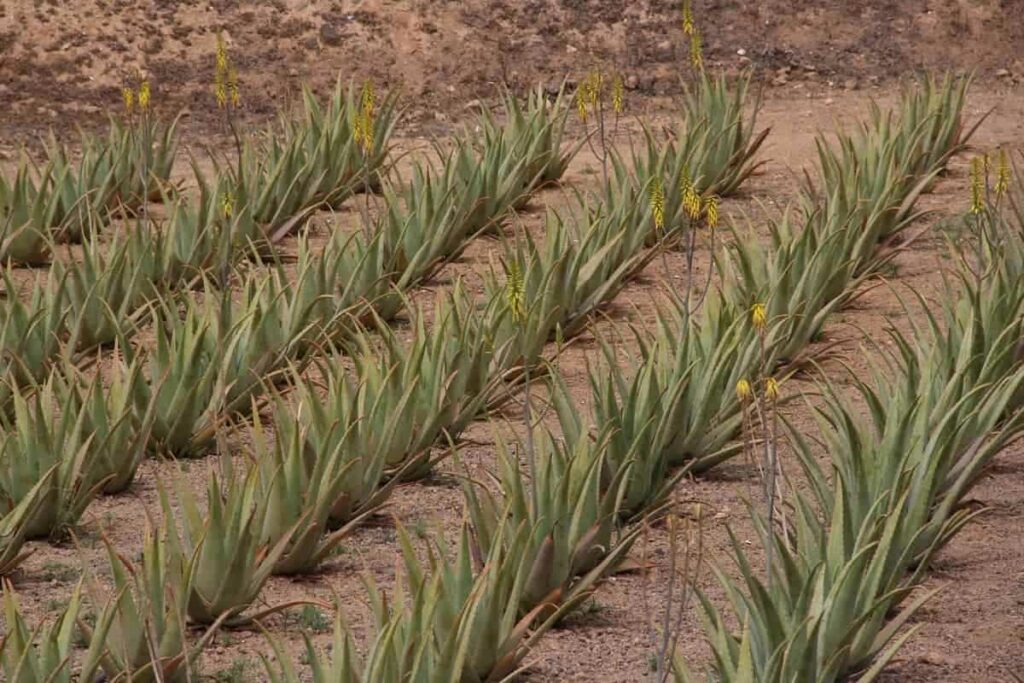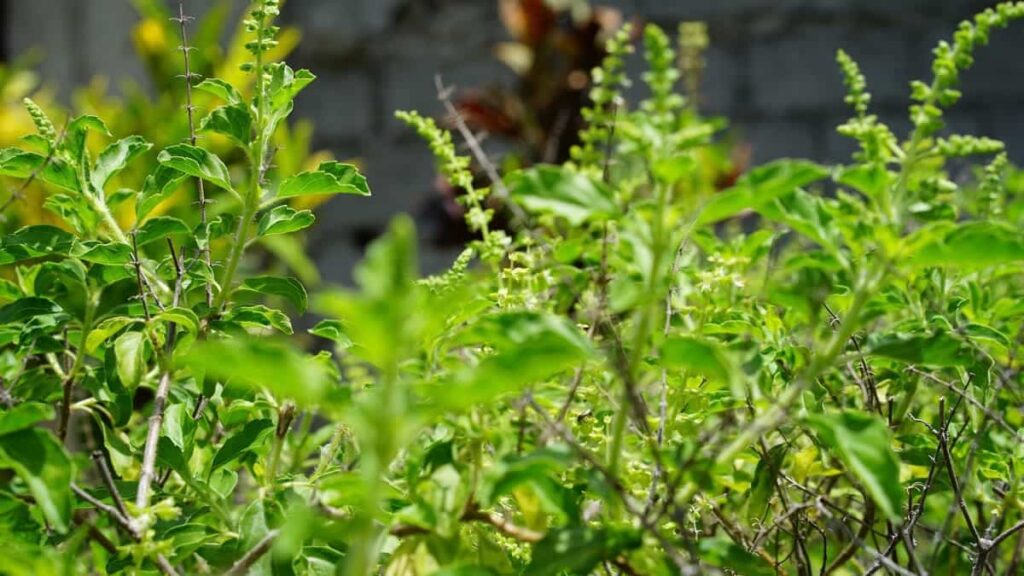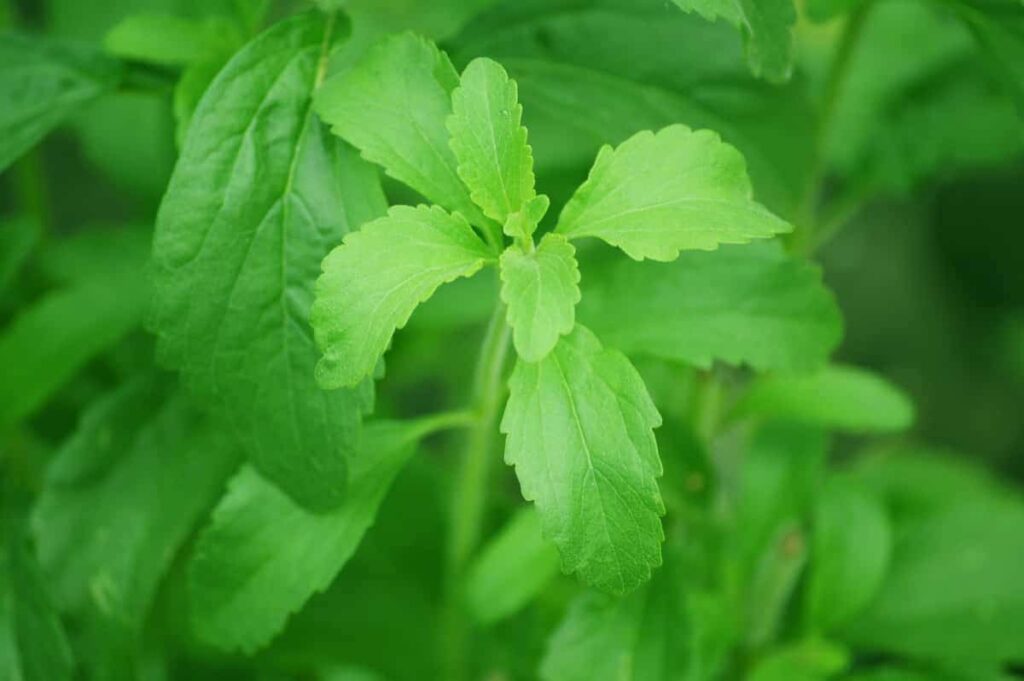India has a rich history of using medicinal plants and herbs for various purposes. Recently, there has been great interest in these traditional remedies and their potential health benefits. This made to an increase in demand for medicinal plants and herbs, which has, in turn, created opportunities for contract farmers to grow these crops. This blog post will discuss the potential of medicinal plants herbs contract farming in India.

We will also highlight some challenges and issues that need to be addressed to make this farming more successful. In this following post, we talk about medicinal plants and herbs contract farming in India. Some of the popular herbs and medicinal plants in India are: Tulsi, Shatavari, Ashwagandha, Giloe/Guduchi, Ginger, Amla, Turmeric, Cumin, Garlic, Black Pepper, Aloe Vera, Neem, Cinnamon, Guggul, Brahmi, Khus, Curry Leaves, Spearmint, Carom, Fenugreek, and Stevia
Medicinal plants herbs contract farming in India
India is a leading country in the cultivation of medicinal plants
India is home to many medicinal plants used in traditional Ayurveda and Siddha medicine for centuries. India is also one of the leading countries in the cultivation of medicinal plants, with many farmers engaged in growing these plants. The Indian government is taking several initiatives to promote the cultivation of medicinal and herbal plants in the country.
The National Medicinal Plants Board (NMPB) was set up in 2000 to develop the cultivation and processing of medicinal plants in India. The NMPB provides financial support to farmers for the cultivation of medicinal plants and for research and development activities related to these plants. The government has also created a scheme for quality control and certification of medicinal plant products, known as the Quality Control of Medicinal Plants Scheme (QCMP).
This scheme ensures that only products that meet certain quality standards are marketed in India. In addition to these initiatives, many private companies are also involved in cultivating and marketing medicinal plants in India. These companies have developed methods for cultivating and processing these plants, often using modern technology and techniques.
The government is encouraging contract farming of medicinal plants and herbs.
The Government of India is encouraging contract farming of medicinal plants and herbs as a part of its National Mission for Medicinal Plants (NMMP). The NMMP was launched in 2000 to develop India’s medicinal plant sector. The government has provided various incentives for contract farmers, including financial assistance, technical support, and marketing support. Under the NMMP, the government has set up 12 regional Ayurveda institutes and three national institutes to promote research and development in the medicinal and herbs field.
In case you missed it: Dairy Contract Farming in India: Companies, Agreement, Profits, How it Works and the Pros and Cons

The government has also created a corpus fund of Rs 1 billion (US$14.5 million) to promote medicinal plants. In addition, the government has provided tax exemptions for producing and processing medicinal/herbal plants. The main aim of the NMMP is to improve the quality and quantity of medicinal plants available in India. The program also aims to create employment opportunities in rural areas, generate foreign exchange earnings, and promote sustainable use of natural resources.
What are the benefits of contract farming of medicinal plants herbs?
- Access to new markets: Contract farming can open up new markets for farmers, as they can access buyers who may not be available locally.
- Improved incomes: As contract farming can often result in better prices for farmers, it can help to improve their incomes.
- Reduced risk: Farmers can reduce the risk associated with fluctuating prices and uncertain demand by entering into a contract with a buyer.
- Access to new technology and knowledge: Farmers involved in contract farming arrangements often have access to new technology and knowledge, which can help to improve their overall productivity.
Who can participate in contract farming of medicinal plants and herbs?
Contract farming of medicinal plants/herbs is open to all farmers in India. However, priority will be given to those who have previous experience cultivating these crops and have adequate infrastructure for storage and processing.
What are the risks involved in contract farming of medicinal plants and herbs?
- Poor quality control: There needs to be more quality control in contract farming operations, which can lead to the production of sub-standard products.
- Pest and disease problems: Due to the lack of proper management practices, contract farms are often plagued by pests and diseases, leading to crop losses.
- Soil degradation: With excessive use of chemical fertilizers and pesticides, the soil on contract farms is often degraded, leading to lower yields in the long run.
- Water pollution: The improper disposal of chemicals used on contract farms can pollute local water resources, affecting human and animal health.
- Social issues: Contract farming can often lead to social tensions between farmers and landowners and between different ethnic groups within a community.
How to get started with contract farming of medicinal plants and herbs?
There are many ways to get started with contract farming of medicinal plants/herbs. One way is to contact a local farmer or herbalist already engaged in this farming. Another option is finding a company specializing in medicinal plant/herb contract farming. These companies typically have a network of farmers they work with, and they can help connect you with the right resources and information. However, if you’re interested in starting your contract farm, there are certain things you need to keep in mind.
First, you’ll need to identify a crop that you’re interested in growing and has market potential. Next, you’ll need to secure funding for your venture. This is usually done through grants, loans, or private investment. Once you have the necessary funding, you’ll need to find farmland and develop a business plan. Once you’ve established your contract farm, it’s important to maintain communication with your farmers and customers. This will help ensure a successful operation and satisfied customers.
Aloe Vera contract farming in India
In India, Aloe Vera is grown under contract farming. The main benefits of this type of farming are that the farmer is assured of a market for his crop and does not have to bear the risk of marketing the crop himself. The farmer is also provided with technical know-how and inputs by the company, which reduces his costs. Under contract farming, the company provides the seedlings or plants to the farmers and buys back the mature plants at an agreed price.
In case you missed it: Contract Sheep Farming in India: Companies, Agreement, Profits, How it Works and the Pros and Cons

The company also trains farmers on how to grow and care for plants. This arrangement helps both the farmer and the company, as it ensures a regular supply of high-quality Aloe Vera plants for the company and gives farmers a good income. Aloe Vera contract farming is a win-win situation for both farmers and companies. Farmers get good incomes, while companies get a regular supply of high-quality Aloe Vera plants.
Tulsi Contract Farming in India
Tulsi herbs, also known as Holy Basil, are a highly fragrant medicinal plant native to India. Tulsi is considered sacred in Hinduism and is often used in religious ceremonies. Tulsi plant has a long history of use in Ayurvedic medicine and is revered for its many health benefits. Tulsi contract farming has become popular as more people learn about the plant’s health benefits. Farmers who grow Tulsi can earn a good income from selling dried leaves and flowers.
Tulsi requires little input and can be grown organically, making it an attractive crop for small-scale farmers. When considering contract farming in Tulsi, there are a few things to remember:
- The plant does best in warm climates and needs plenty of sunlight.
- Tulsi should be harvested when the leaves are at their darkest green color. This usually occurs towards the end of the growing season.
- It’s important to cure the dried leaves properly before selling them, as this helps preserve their potency.
Many resources are available to help you get started if you’re interested in growing Tulsi. Contract farming is a great way to earn an income from this valuable plant while helping to preserve India’s rich cultural heritage.
In case you missed it: How to Grow Poplar Tree: A Guide to Propagation, Planting, and Care

Stevia contract farming in India
Stevia is a plant that originated in South America and has been used as a sweetener for centuries. The leaves of the stevia plant contain Stevioside, which is a natural Sweetener. The stevia plant can be grown in any climate, but it does best in tropical and subtropical climates. India is well suited for stevia cultivation because of its climate and soil conditions. There are many benefits to contract farming stevia in India.
One benefit is that medicinal plant farmers can get better crop prices. Another benefit is that contract farming helps to ensure a consistent supply of stevia leaves. Contract farming also helps to protect farmers from price fluctuations in the market. Under a contract farming arrangement, farmers are guaranteed prices for their crops, regardless of market conditions. This stability can help farmers plan and budget for their operations more effectively.
Ashwagandha contract farming in India
Ashwagandha is an important medicinal plant in the Ayurvedic and traditional Chinese systems of medicine. It is commonly known as the winter cherry or Indian ginseng in India. The roots and leaves of this plant are used to prepare various Ayurvedic medicines. Contract farming of Ashwagandha is done on a large scale in many parts of India. In this type of farming, farmers grow crops under the guidance and supervision of experts from pharmaceutical companies or Ayurvedic medicine manufacturing units.
The companies provide farmers with seeds, planting materials, and other inputs and buy back the crops at pre-determined prices. This arrangement ensures a steady supply of raw materials for the companies and provides income security to the farmers. Contract farming of medicinal plants has seen significant growth in recent years due to the increasing demand for Ayurvedic medicines globally. India is one of the top producing countries of Ashwagandha and exports large quantities of this herb to several countries.
Shatavari contract farming in India
Shatavari is an important medicinal plant in India, traditionally used to treat various ailments including digestive disorders, respiratory problems, and anxiety. The roots and leaves of the Shatavari plant are used to make a variety of medicines and supplements. Shatavari contract farming is becoming increasingly popular in India as more people become aware of the benefits of the plant. Several companies offer contract farming services for Shatavari, and many farmers are eager to get involved in this type of farming.
In case you missed it: How to Grow Desert Roses: Varieties, Soil, Planting, Pruning, Fertilizers, and Care

The main benefit of Shatavari contract farming is that it helps to ensure a steady supply of plant material. This is especially important for small-scale farmers who may need more resources to grow the plant. Contract farming also allows farmers to sell their products at a higher price than they could get if they sold them on the open market. This is because contract farmers can sell their products directly to companies that use them, bypassing mediators and wholesalers.
If you’re interested in getting involved in Shatavari contract farming, there are a few things you need to know. First, you’ll need a good contractor to provide your seeds or plants. You’ll also need to be sure that you have enough land to grow the crop and that your soil is suitable for cultivation. Finally, you’ll need to be prepared for some initial investment in fencing.
Medicinal plants herbs contract farming companies in India
The medicinal plant industry in India is growing at a rapid pace. The demand for medicinal plants is increasing due to the growing awareness of their medicinal properties. However, the supply of medicinal plants needs to keep up with the demand. This has led to a situation where there is a need for contract farmers who can grow medicinal plants.
Many contract farming companies in India are willing to work with farmers to grow medicinal plants. These companies provide all the necessary inputs and support to the farmers. They also help the farmers market their products. The following are some of the leading medicinal plant contract farming companies in India:
- Aayur Medica: Mayur Medica is a leading player in the Indian medicinal plant industry. They have been working with farmers for over ten years. They provide all the necessary inputs and support to the farmers. They also help the farmers market their products.
- Himalaya Herbal Healthcare: Himalaya Herbal Healthcare is another leading player in the Indian medicinal plant industry. They have been working with farmers for over 20 years. They provide all the necessary inputs and support to the farmers. They also help the farmers market their products.
- Dabur India Ltd: Dabur India Ltd is another leading player in the Indian medicinal plant industry. They have been working with farmers for over 30 years. They provide all the necessary inputs and support to the farmers. They also help the farmers market their products.
- Patanjali Ayurved: Another leading herbal company in India, they also work with farmers directly based on medicinal herbs contract farming in India
In case you missed it: Vertical Strawberry Farming: A New Way to Increase Your Income and Yield

Profits in medicinal plants herbs contract farming in India
The Indian medicinal plant sector is worth Rs 1,200 crore and grows at 20 percent per annum. The sector provides livelihood to over four million people in the country. Contract farming of medicinal plants is a new concept in India and has recently gained popularity. Under this arrangement, farmers produce medicinal plants as per the specifications of buyers or companies. These companies provide technical know-how and market linkages to the farmers. The main advantages of contract farming for medicinal plants are:
- It ensures a continuous and stable supply of raw materials to the companies.
- It helps companies to reduce their risks as they do not have to invest in land and infrastructure.
- It helps the farmers to get better prices for their produce as they are assured of a market for their products.
- It helps in quality control as the companies provide technical know-how to the farmers to grow the plants per their specifications. 5. It creates employment opportunities for rural youth.
If you live in the following states and plan to go for medicinal plants herbs contract farming in India, this article may help you with information about companies providing contract agreements with farmers.
| Andhra Pradesh | Karnataka |
| Arunachal Pradesh | Kerala |
| Assam | Madhya Pradesh |
| Bihar | Maharashtra |
| Chhattisgarh | Manipur |
| Goa | Meghalaya |
| Gujarat | Mizoram |
| Central India | South India |
| Haryana | Sikkim |
| Himachal Pradesh | Tamil Nadu |
| Jharkhand | Telangana |
| Nagaland | Tripura |
| Odisha | Uttar Pradesh |
| Punjab | Uttarakhand |
| Rajasthan | West Bengal |
| North India | West India |
- Sheep Farming Business Plan for Beginners
- Aquaponic Farming at Home: A Step-By-Step Guide
- Profitable Village Farming Business Ideas in 2024
- High-Yield Aquaculture: Fast-Growing Fish for Farming
- Effective Fish Pond Construction Techniques for Beginners
- Irrigation and Water Management in Pineapple Farming
- Blossom to Harvest: Mastering Flowering and Pollination in Papaya Farming
- Pig Fattening Essentials: From Selection to Sale for Beginners
- Raising Wagyu Cattle: A Complete Guide for Premium Beef Production
- Soil Types and Their Water Holding Capacity
- Optimizing Irrigation Schedules for Coconut Groves for Enhanced Yield
- Espresso Your Garden: Coffee Grounds for Healthier Acid-Loving Plants
- The Best Soil Mix for Snake Plants: How to Mix Your Own Snake Plant Soil
- Green Thumb Success: Expert Tips for Cultivating Greenhouse Beans All Year Round
- Bloom All Year Round: The Ultimate Guide to Indoor Hyacinth Care
- Eco-Friendly Gardening: How to Make Liquid Fertilizer from Kitchen Waste
- Ultimate Guide to Grow Anise in Pots: Explore Seed Propagation to Harvesting
- Guide to Raising Chester White Pigs: Discover Breed Facts to Growth Management
- Mastering the Elegance: The Ultimate Guide to Weeping Cherry Tree Care, Planting, and Maintenance
- Ultimate Guide to Planting Garlic in Grow Bags: Growing Strategies for Beginners
- How to Fix Spider Plant Leaf-Related Problems: Natural and Organic Remedies
- 10 Reasons Why Your Tulsi Plant is Shedding Leaves: Home Remedies and Solutions
- Optimizing Growth and Yield: The Advantages of Palm Bunch Ash Fertilizer
- Utilizing Neem Oil Extract as a Natural Pesticide for Hydrangea
- From Soil to Harvest: Various Ways in Which Farmers Can Use AI Tools
- Steps to Encourage and Induce Citrus Flowers: A Comprehensive Guide
- How to Fix Snake Plant Leaf-Related Issues: Natural and Organic Remedies
- Transform Your Garden into a Fragrant Oasis with Raat Ki Rani (Night Blooming Jasmine)
- Discover the Ideal Chicken Breeds for Philippine Farms
- How to Create a Poultry Egg Farm Business Plan for Profits
- Grow Lemon Cucumbers Like a Pro: Insider Techniques for Bountiful Yields
- Ultimate Guide to Caring for Your Pink Princess Philodendron: Tips for Thriving Variegation
- Areca Nut Profit Per Acre: Calculating Yield and Cost of Cultivation
- How Kaveri Chicken is Becoming a More Profitable Breed in Indian Backyards
- Transform Your Barn: 9 Steps to Convert a Horse Stall into a Chicken Coop
- Exploring Suffolk Sheep Disadvantages with Limitations and Challenges

shetavari contract farming information
I am intrested in Aloe vera cultivation in contract basis forming.
I want to grow tulsi, stevie, alovera and shatavari
I am having 2.5acre of irrigated land in village- Khojipur District-Jammu(J&K) and is interested in Aloe Vera farming having contract farming with your company. Please advise me the procedure for that.